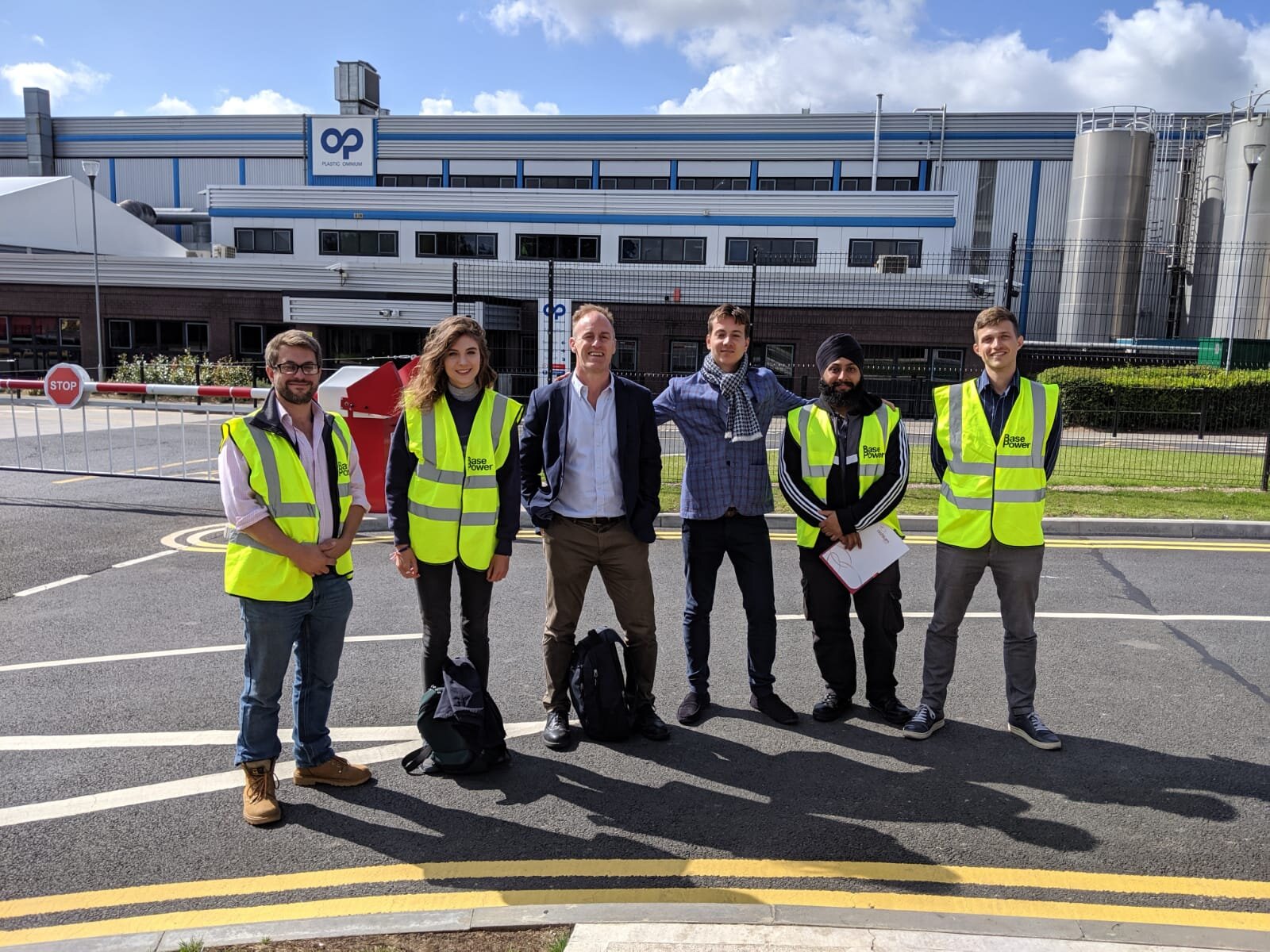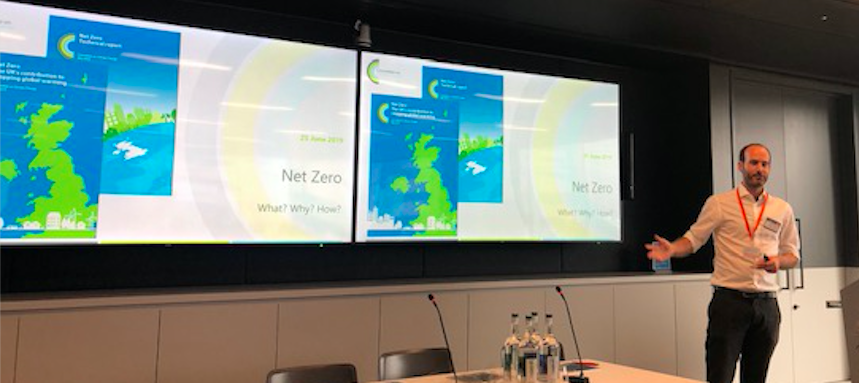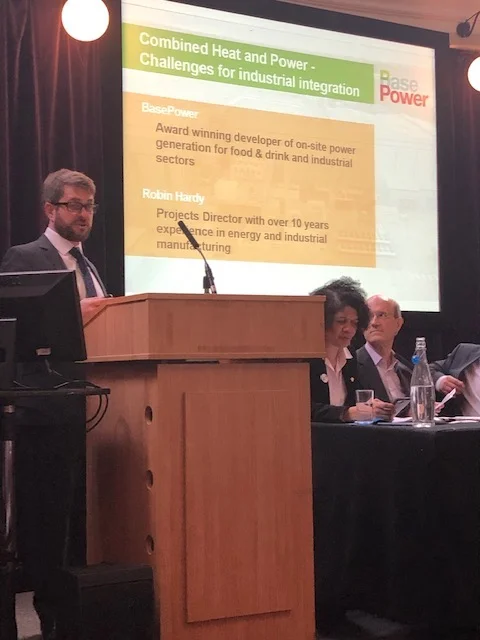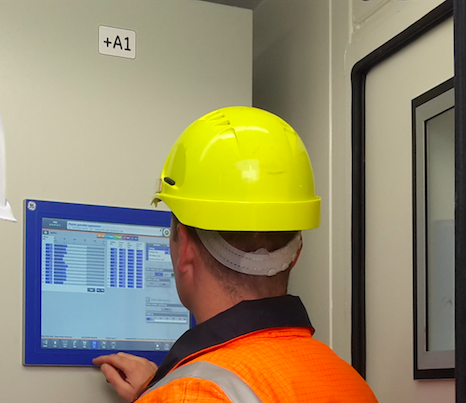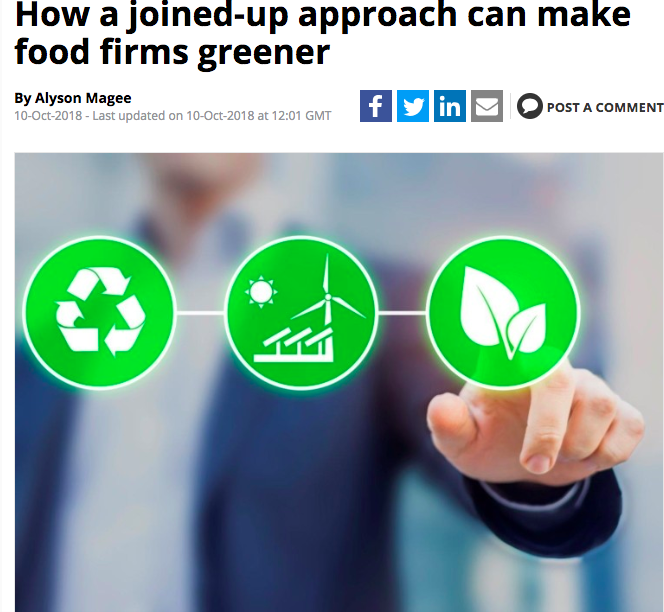If your business is considering installing an on-site power generation scheme, getting the right project in place will have a clear impact on the subsequent energy and carbon savings that you can expect. So how do you ensure you choose the right scheme? Procurement teams often ask BasePower for advice so we have compiled some of the commercial, technical and operational questions you might wish to ask bidders.
1. What is the project’s true ROI likely to be?
Whether you or the bidder are financing the project, the higher the project’s return on investment, the higher the savings will be to you. CHP ROI is a function of:
· The quantity of heat and power displaced from the grid
· The electricity and gas prices over the life of the project
· The project’s annual running hours
· The average engine efficiency and therefore amount of gas fuel used
· The Capex required given the scope of the project, and how this is financed.
It can be difficult for non-CHP specialists to interrogate numbers given by bidders, and the best way is usually to ask for actual figures from at least one project that the bidder is currently operating. Look for a partner who will give you an honest, realistic assessment of the expected energy savings.
2. Before starting, do you understand your site’s energy use and costs?
Before proceeding with a project, ensure you have a gained an accurate picture of your current energy costs and usage patterns, ideally on a half-hourly basis for the major uses. This will allow bidders to right-size a project, and also allow you to assess whether the CHP scheme proposed is realistic for your operation.
3. Have it laid out your way
It’s really important to get all bid information in as standard a format as possible, otherwise it can be very difficult to compare bids. In BasePower’s experience, asking bidders to complete a Performance Spreadsheet can be enormously helpful in giving you enough data to make an informed decision about the project's potential benefits. This should detail what heat and power the CHP will supply on an hourly basis throughout the year against a typical year of site demand. It should also calculate how the benefits are built up and help you check that the performance claims are realistic. Ask us for an example if you don’t have one.
4. What is required from the site?
You will want to choose a level of involvement that suits the skills and resource available from your company. Therefore get bidders to be crystal clear whether your organisation, as the buyer, will be responsible for any development (e.g. obtaining planning consent, environmental permit variations or grid connection offers), construction (enabling works, site management, Prime Contractor) or operational (insurance, compliance, fuel procurement) roles.
5. What will you really pay, and what if your energy use changes?
There should be a clearly understandable mechanism which sets the price of power, steam, hot water and chill for your business, so you can run your own scenarios based on volume and price changes. Find out whether the proposed contracts include ‘take or pay’ or penal clauses if you change the quantity or balance of energy use on site, or close the site altogether. Finally, this may seem obvious but we have met bargain-looking offers where the host had not been told that they would be paying for the gas as well as the power. That may be fine for you, but don’t forget to check who pays for what.
6. Who will take the risk on CHPQA and Carbon
Government literature assumes that CHP projects will be at least as energy- and carbon-efficient as the generation technology they displace. Projects that do not meet this aim are more likely to be adversely affected by the further carbon legislation that will be brought in during their lifetime. Bidders should demonstrate clearly the CHPQA QI score and CO2 savings for the project, so that the buyer can calculate any effect on Enhanced Capital Allowances, Climate Change Levy or Climate Change Agreement charges if ‘Good Quality CHP’ or CO2 reductions are not achieved.
7. How robust is the project to changes in energy pricing?
Look at how many of the proposed benefits in the CHP contract are expected to come from energy charges e.g. Triad and DUoS avoidance. Be sceptical about benefits associated with avoiding these costs as these charges are currently under review by the Government at present. Ask your bidder how they think these might change and what impact will this have in the future?
8. What will the supplier guarantee?
It is vitally important to understand in what circumstances any supplier’s guarantees may not hold. This could potentially range from overruns in Devex or Capex, falls in consumption volumes, a changes to Embedded Benefits or even a delay in the project.
9. What happens if things go wrong?
We all know that moving parts trip or fail from time to time. Above all you will not want any site disruption if things go wrong at the CHP. From the start insist that the CHP scheme does not make the manufacturing site dependent on the CHP for its operation, and give engineering colleagues the right to sign off that the scheme does not allow CHP faults or trips to propagate into the factory’s power or heat infrastructure.
10. Plan for the long term
A CHP Scheme can last between 10-15 years therefore ask bidders to describe to you their medium-term plans. How will the project’s O&M be arranged and how are major overhauls accounted for? Will there be a daily visual inspection? What about performance reviews, and what leverage do you have if performance promises are not met?
11. Ask for references
Finally, ask bidders what recent projects they have installed in the last 24 months that are a similar size to your situation. Ideally the reference sites should use power and heat in a similar way and have similar commercial arrangements. Bidders should be willing to take you to see the scheme in operation and let you talk directly to the host.
For a complimentary Performance Spreadsheet template with a handy checklist to help your Procurement process, please contact our team.


